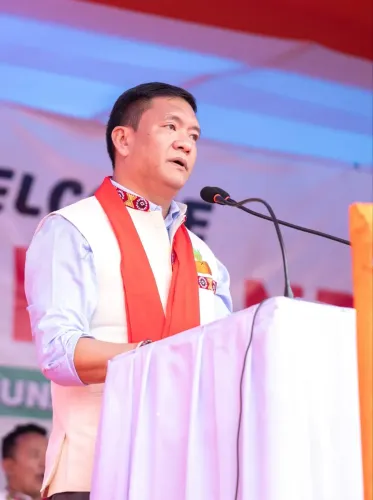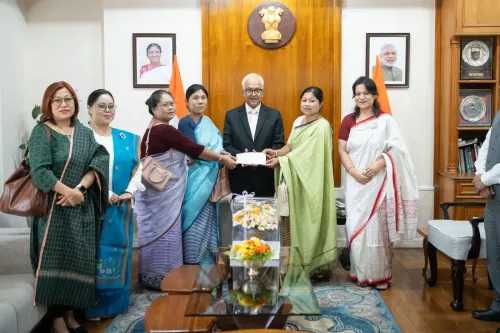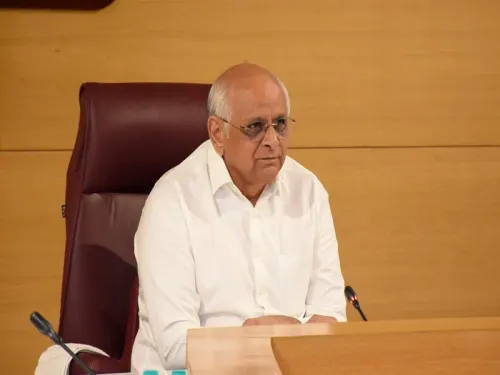KCBC Appeals to Kerala MPs for Waqf (Amendment) Bill Support

Synopsis
Key Takeaways
- KCBC's support for the Waqf Amendment Bill.
- Importance of amending unjust Waqf law sections.
- Land dispute in Munambam involving 404 acres.
- Opposition from Muslim groups and protests.
- Political implications for Kerala MPs and their constituents.
Thiruvananthapuram, March 30 (NationPress) The Kerala Catholic Bishops’ Council (KCBC) has called upon all Members of Parliament from Kerala to lend their support to the Waqf (Amendment) Bill proposed by the Central government.
The Council highlighted that the passage of this bill is crucial for delivering justice to the community in Munambam, a coastal area within the Ernakulam district.
In a collaborative statement, KCBC president Cardinal Baselios Cleemis Catholicos, vice-president Bishop Pauly Kannookadan, and secretary-general Bishop Alex Vadakumthala urged MPs to advocate for the residents and vote to amend what they termed “unconstitutional and unjust” provisions of the current Waqf law.
The KCBC specifically pointed out the land dispute in Munambam, where the Kerala State Waqf Board has staked a claim on about 404 acres of land. This territory is inhabited by over 600 families—mainly Christians from the Latin Catholic community and Hindus from marginalized backgrounds—who assert their long-term residency and legal purchase of the land from Farook College.
Farook College, the previous steward of the land, has verified that it received the property as a donation and subsequently sold it. Nevertheless, the Waqf Board has challenged this ownership under the existing Waqf regulations.
The KCBC contended that these legal provisions need to be revised to avert unjust claims and safeguard the property rights of the inhabitants.
The Council stressed that elected officials have a responsibility to uphold the legitimate rights of their constituents and to ensure that outdated legal frameworks do not infringe upon lawful ownership supported by registered deeds and land tax receipts.
As the Budget Session of Parliament approaches its conclusion, the Union government is intensifying its efforts to advance the Waqf Amendment Bill.
Union Home Minister Amit Shah announced in the Lok Sabha that the bill is set to be presented during the current session. He clarified that the proposed amendment would grant sole authority to courts for resolving land-related disputes, promoting fairness and legal transparency.
However, the bill has encountered considerable opposition from Muslim organizations across the country. The All India Muslim Personal Law Board (AIMPLB) recently called for national protests against the legislation, labeling it a “sinister conspiracy” aimed at stripping Muslims of their religious and charitable institutions, including mosques, eidgahs, madrasas, dargahs, and graveyards.
Following the AIMPLB’s call to action, Muslims in various states donned black armbands during the last Friday prayers of Ramzan as a form of protest.
Despite bipartisan repudiation of the bill among Kerala MPs—19 out of 20 of whom are affiliated with non-BJP parties—the KCBC’s backing has ignited political discussions within the state.
The BJP, with only one MP from Kerala, Union Minister of State Suresh Gopi, has expressed support for the KCBC’s statement.
Newly appointed BJP Kerala state president Rajeev Chandrasekhar reiterated his party’s endorsement of the KCBC’s plea, asserting that the bill is not anti-religious but rather about safeguarding constitutional rights.
“This is not against any religion; it is about preserving constitutional rights. Our Constitution guarantees property rights, and we must uphold this. I call upon political parties to cease appeasement politics,” he stated.
He further noted that numerous families in Kerala have suffered due to alleged arbitrary land seizures by Waqf authorities.
“In Kerala alone, there are hundreds of families in Munambam, near Cochin, whose land and properties are being taken by the Waqf without justification. The Waqf Amendment Act will protect citizens from arbitrary land appropriation,” he remarked.









